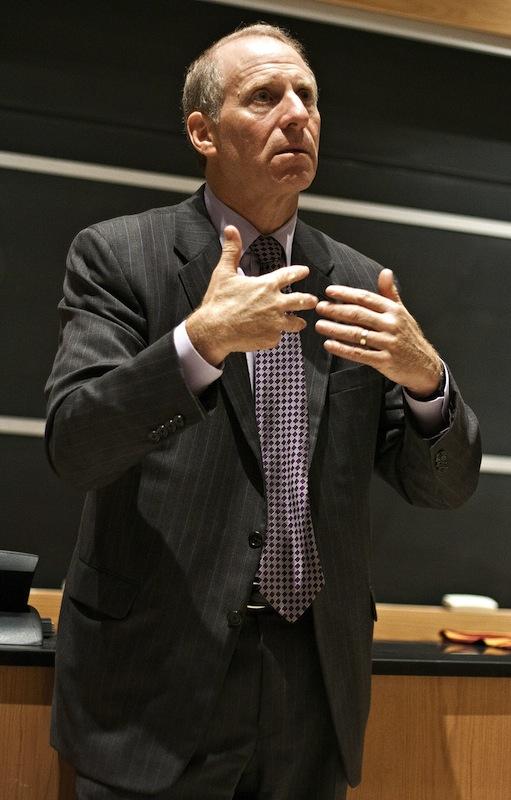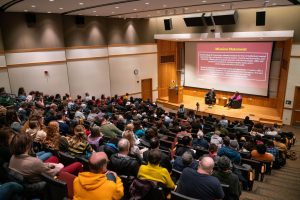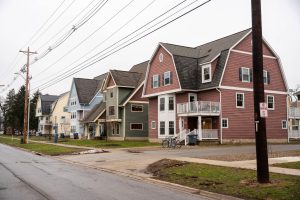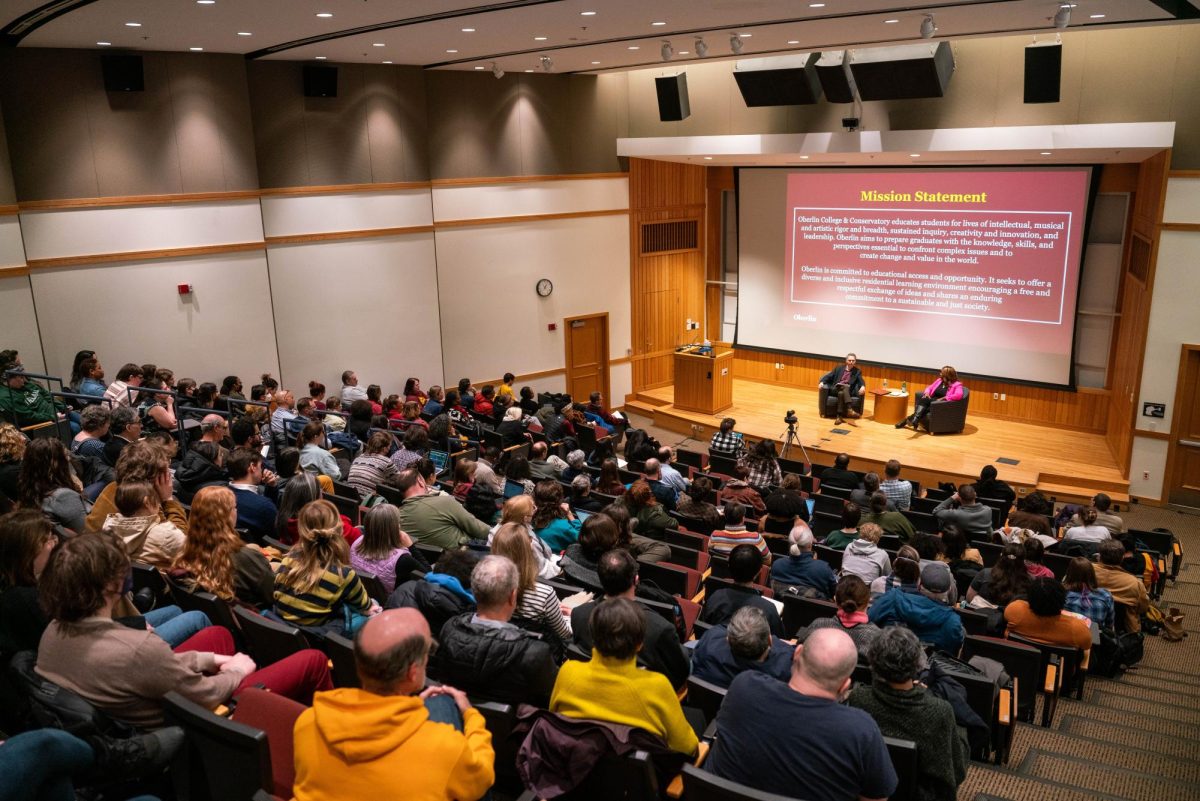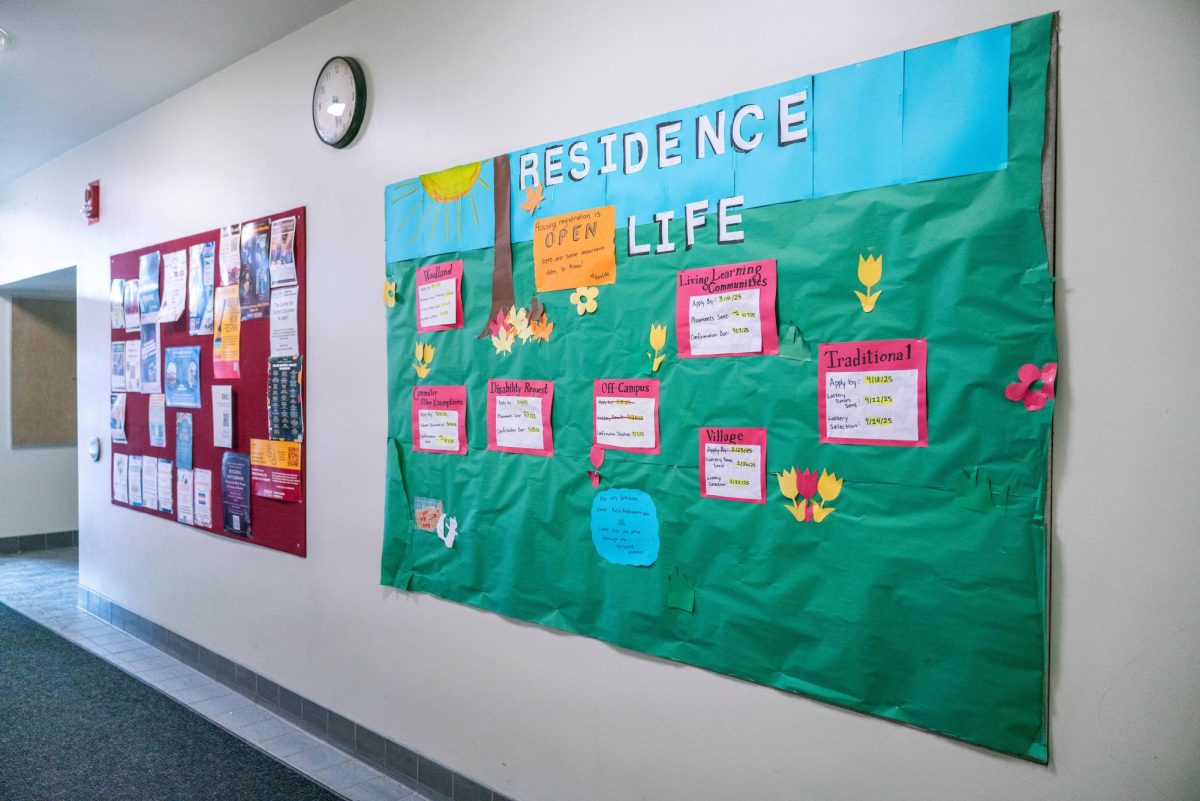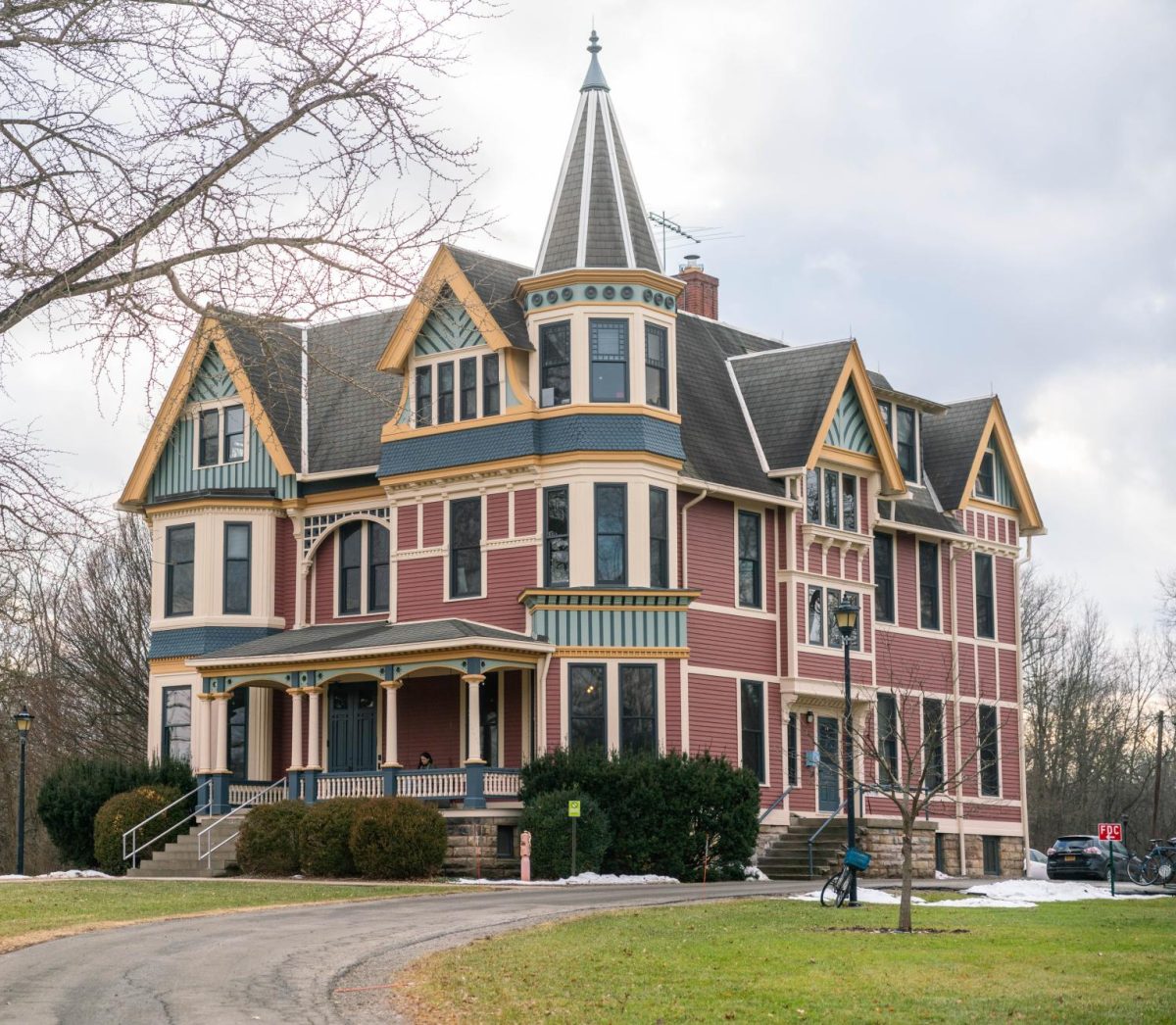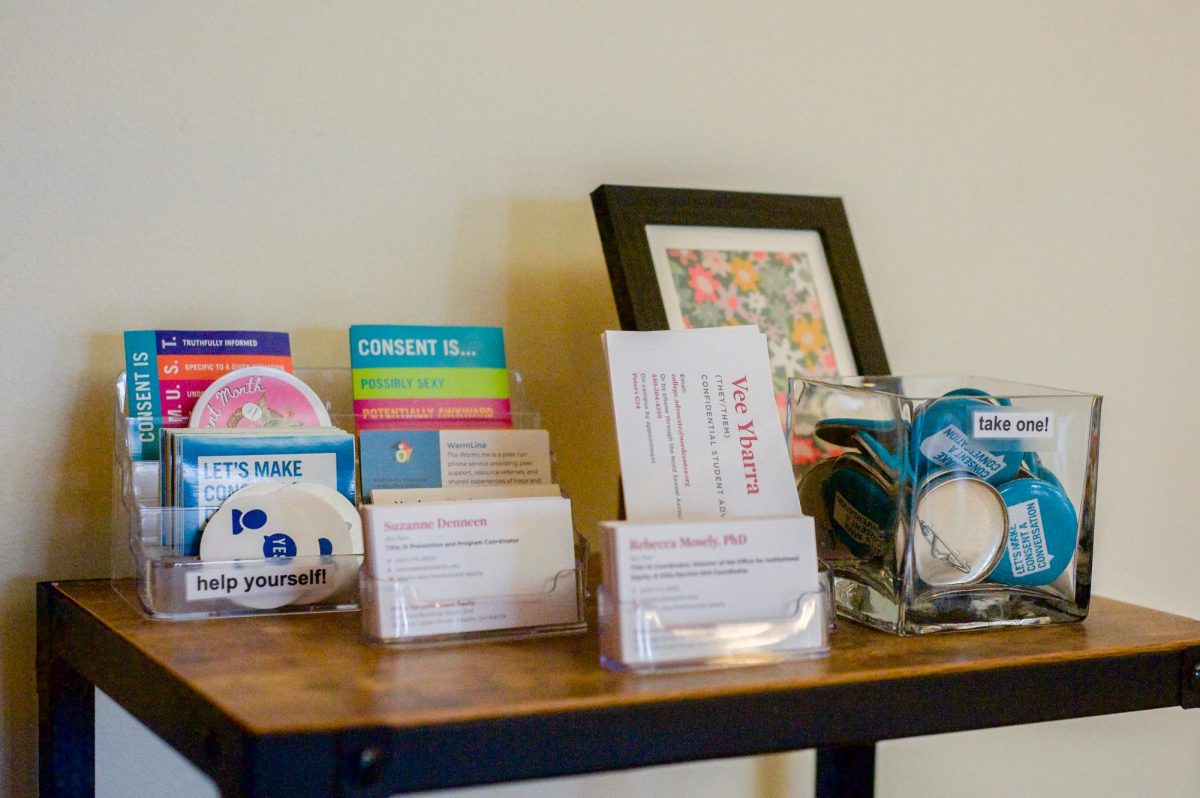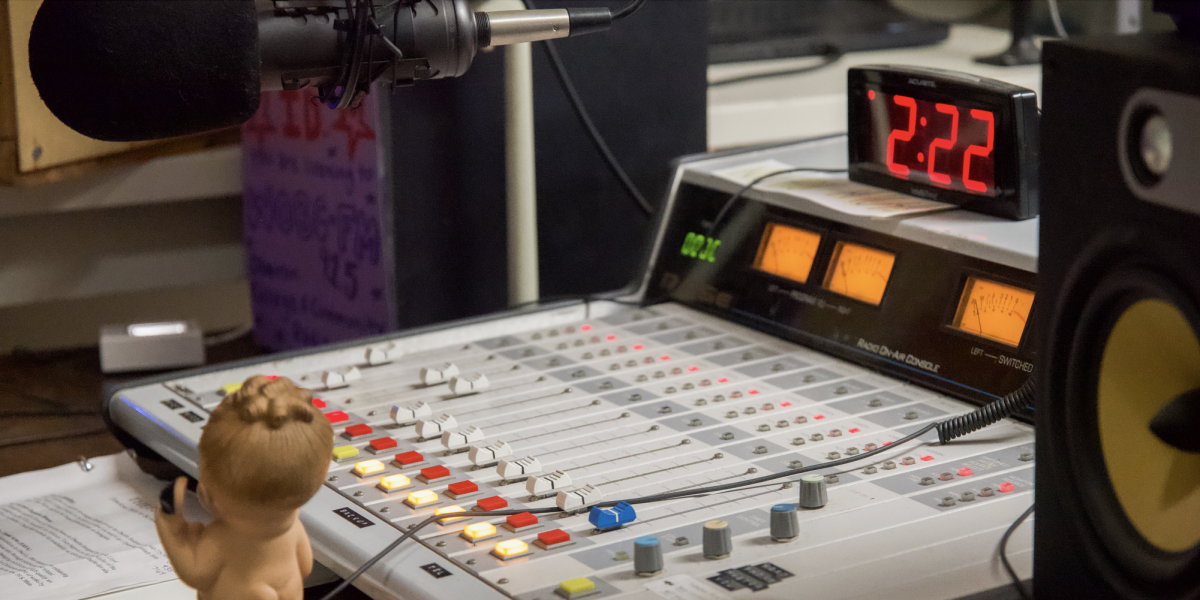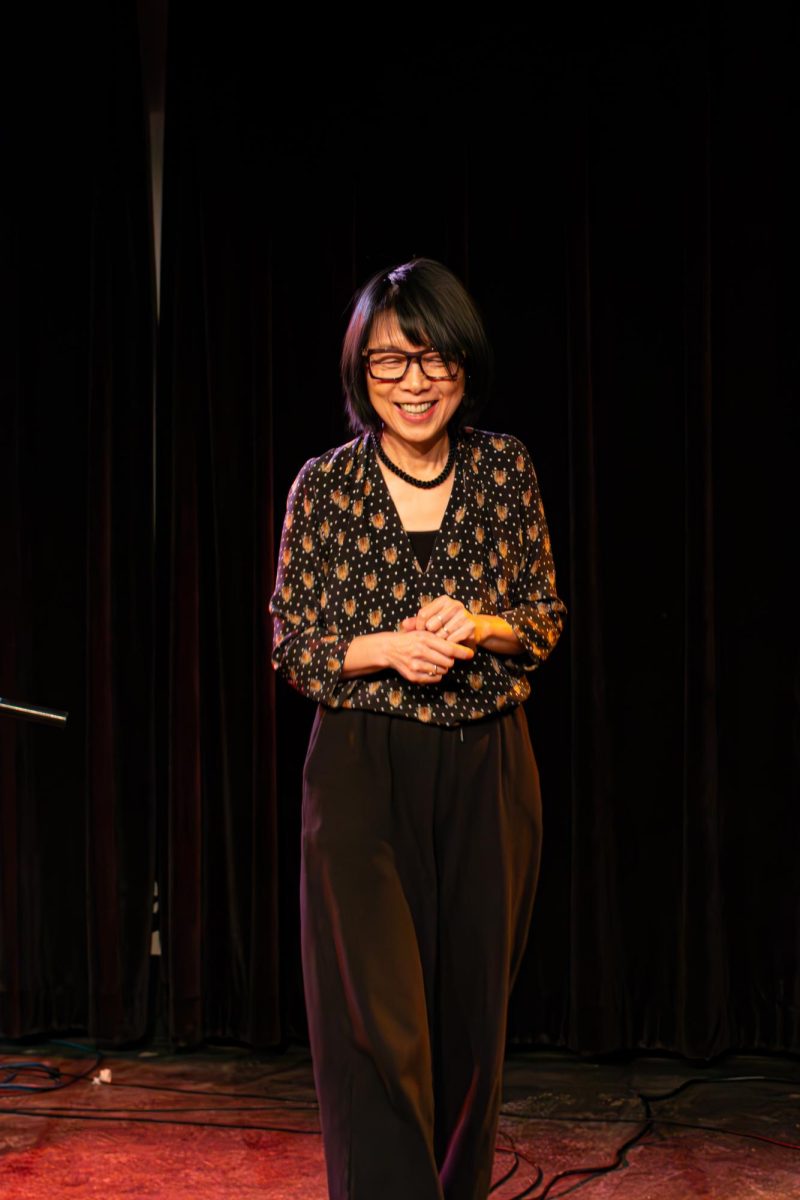CFR President Haass Predicts Gloomy Future for Middle East
Richard Haass, President of the Council on Foreign Relations, expressed doubts about how the recent civil uprisings in the Middle East will provide positive, enduring change for the region.
October 14, 2011
Richard Haass, OC ’73 and president of the Council on Foreign Relations, a nonprofit organization that aims to educate U.S. citizens about international politics, visited Oberlin last Thursday to share his thoughts on American foreign policy in the aftermath of the Arab Spring. Earlier this year, a wave of popular uprisings against authoritarian governments occurred in countries across the Middle East, including Tunisia, Egypt, Yemen and Libya, in what Haass called the “Arab Awakening.”
Unlike President Obama, who views the Arab Spring as a movement where countries in the Middle East “have shown their courage in demanding a transition to democracy,” Haass views these recent upheavals with trepidation and skepticism.
“Nomenclature is important,” Haass said, justifying his choice to use different terminology. “The term ‘Arab Spring’ implies seasonality,” he explained, pointing out that the efforts of such a revolutionary event stood to last much longer than a three-month-long period.
Haass also disagrees with the way “spring” implies a happy ending. He repeatedly mentioned his “Debbie Downer” attitude on the potential consequences of the upheavals in the Middle East. Haass argues that the issues that nations such as Libya and Syria now face are even more daunting than the difficulties these countries overcame in overthrowing dictators.
“Even more challenging is reassembling a new government,” Haass said. “This is the enormous, enormous challenge [of these revolutions].”
Haass explained his view of the two possible futures for the Middle East. Optimistically, the situation will remain volatile in the short run but result in the establishment of functioning democracies within a few years. Pessimistically, the situation will remain “rough in the short run and rougher in the long run.” Haass himself bets heavily on the pessimist’s view: that “things have to get worse before they get even worse.”
Haass’s attitude butted heads with many student audience members’ views on the future of the Middle East. Some students questioned the meaningfulness of the mass protests for democracy in Cairo’s Tahrir Square this year, but Haass seemed to shoot down some of the issues that students proposed.
With regard to the U.S.’s foreign policy in the Middle East, Haass explained that prescription is the hope that many policy makers have, but the reality is that the U.S. has very little control. When a student brought up positive transformations in South American countries over the past century, Mr. Haass replied bluntly:
“If I were an optimist, I would say the Middle East will look as good as parts of Asia and South America do today, twenty years after uprisings, but I doubt that’s possible,” he said.


